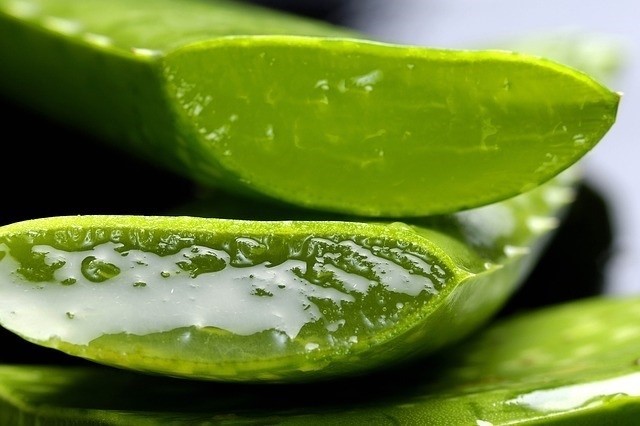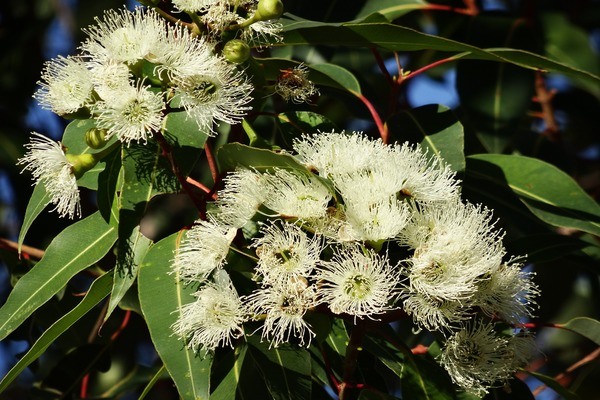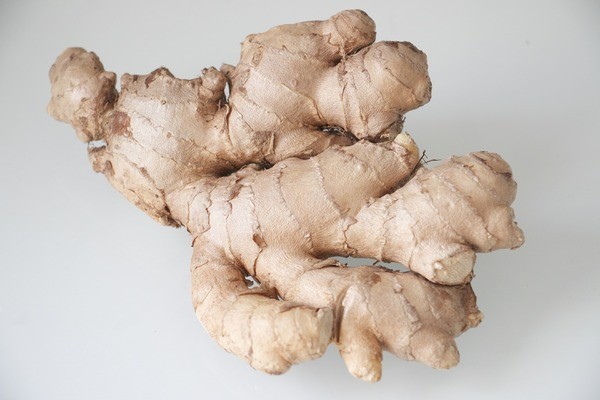5 Herbs to Treat Joint Pain

Joint pain can be caused by many different things, from arthritis to bursitis, to injury. Even certain diseases like mumps, hepatitis and flu can cause problematic joint pain. And with six different types of moving joints in your body, you have many potential pain points. Whatever the cause or location, the result has a major impact on your ability to “function” throughout the day.
Over-the-counter medications or even prescription drugs can help alleviate joint pain, but they come along with disruptive side effects, and can interact with other medications you may be taking. It is always better to start with the less invasive method of pain control and then try the heavier drugs if necessary. Fortunately, there are several natural herbs that can effectively block joint pain without causing undesirable side effects.
Below you will see the five most commonly available herbs that can relieve sore joints. But first, let's take a look at the body process that causes joint pain (Hint: points to the tendency of our bodies to overreact with protective actions). Stay with us until the end and you will be well armed with both topical and oral natural painkillers that can improve your quality of life. You may already have many of them in your pantry.
The Head of Joint Pain: Inflammation
Inflammation is a complex process that can be both harmful and useful. It is the body's response to infection or injury, trying to isolate the injured part of the body from other healthy areas. This answer is crucial in countering strange intruders. Inflammation is the main component of healing - think about the inflammation you have after exercising. The result is that your muscles rebuild stronger than ever.
However, chronic inflammation is associated with almost every disease known to man. When left untreated, inflammation causes more problems than it resolves, including paralyzing joint pain. This is why popular over-the-counter medications, especially ibuprofen, help inflammation more than pain itself. The following herbs are known to reduce inflammation and swelling, thereby relieving suffering.
1. Aloe Vera

You probably have aloe somewhere in your closet, and use it every time you or a family member has a sunburn. Aloe Vera is also popular for treating minor skin abrasions. But she can do so much more! It contains more than 75 potentially active components, including alloin and emodine, which act as pain relievers. Aloe Vera also contains several powerful anti-inflammatory substances.
There are two ways in which you can use aloe vera to relieve pain. The first is the standard topical application, massaging the painful areas. Look for aloe gel that has been certified by the IASC (International Aloe Science Council). Some generic brands contain little aloe, or the active ingredients have been damaged by processing.
The second is by taking an aloe vera supplement orally. A capsule is quick and easy to take, but you can also buy pure aloe vera juice, which has a mild flavor and can be integrated into vitamins or milk shakes. But be warned: People taking diabetes medicine, stimulant laxatives or diuretics should talk to their doctors first before taking aloe.
2. Eucalyptus

Eucalyptus is a well known topical pain reliever that is incorporated into all types of joint pain creams and ointments. It has that strong minty smell that we tend to associate with pain relief treatments, and research indicates that even smelling eucalyptus in the form of an essential oil can relieve discomfort.
Eucalyptus leaves contain tannins, which supposedly lessen the swelling and pain of inflammation. If you have never used eucalyptus before, test for allergies first before using it. Simply apply a small amount to your forearm and look for any negative reactions such as a rash or hives. If nothing happens within 24 to 48 hours, you can probably apply eucalyptus to your aching joints.
3. Ginger

In traditional Chinese medicine, ginger is provided to increase blood circulation, which has a beneficial effect on resolving inflamed areas. Ginger supposedly also improves blood sugar levels, protects against heart disease, lowers bad cholesterol, strengthens brain function, and even reduces the risk of developing cancer. That's right, ginger does it all besides treating inflammation and reducing pain.
The active ingredient in ginger is called gingerol, which has strong anti-inflammatory and antioxidant capabilities. Older studies have reported that the use of ginger in rheumatoid arthritis patients is very promising, and research is underway on the pain-relieving benefits of this potent herb. Ginger can be used fresh, dry, in powders, or in the form of oil. Most people like the taste of ginger, but feel free to use a capsule supplement if you want the benefits without the taste of ginger.
4. Green Tea

Green tea is one of the healthiest drinks you can choose for many reasons. From improved brain function to increased fat burning, green tea improves overall health. It is also a strong anti-inflammatory, and has been shown to benefit people with osteoarthritis and rheumatoid arthritis.
Most people simply like to drink green tea, but you can also take it in the form of a pill or tincture. A green tea concentrate allows you to add green tea flavor to all types of food. And, on the other hand, you can add other anti-inflammatory herbs to your cup of green tea, such as ginger or aloe.
5. Saffron

Saffron is the yellow-orange spice used to make curries. More than just a pleasant flavor, turmeric has been used in folk medicine for a long time. Scientists today understand that the active ingredient in turmeric, called curcumin, has anti-inflammatory properties.
Recent studies in rats have found that turmeric has the potential to slow the progression of rheumatoid arthritis. The National Center for Supplementary and Integrated Health suggests that turmeric / curcumin is more effective when ingested rather than topically applied. But that's fine, because saffron tastes great in all kinds of dishes. If you don't like the taste, curcumin capsules are just as good.
Conclusion

Herbs that are known to reduce inflammation are fantastic natural remedies for joint pain. They help limit the body's overactive immune response without causing further problems in the form of unpleasant side effects. Some are better when used topically, such as eucalyptus, but most can be integrated naturally into your daily diet, and even in combination, such as green tea and ginger.
An anti-inflammatory regimen that is based on natural herbs is very likely to reduce dependence on over-the-counter and prescription drugs, which may only improve your quality of life. And remember, all the herbs we mentioned have multiple health benefits that go beyond pain relief. You have nothing to lose by experimenting!




Post a Comment